Exploring the World through Story is a secular world literature curriculum for grades K-8, integrating literary analysis, writing, and memory work. Click below to start exploring, or download EWS Samples All Levels.
Folktales (Grades K-2)
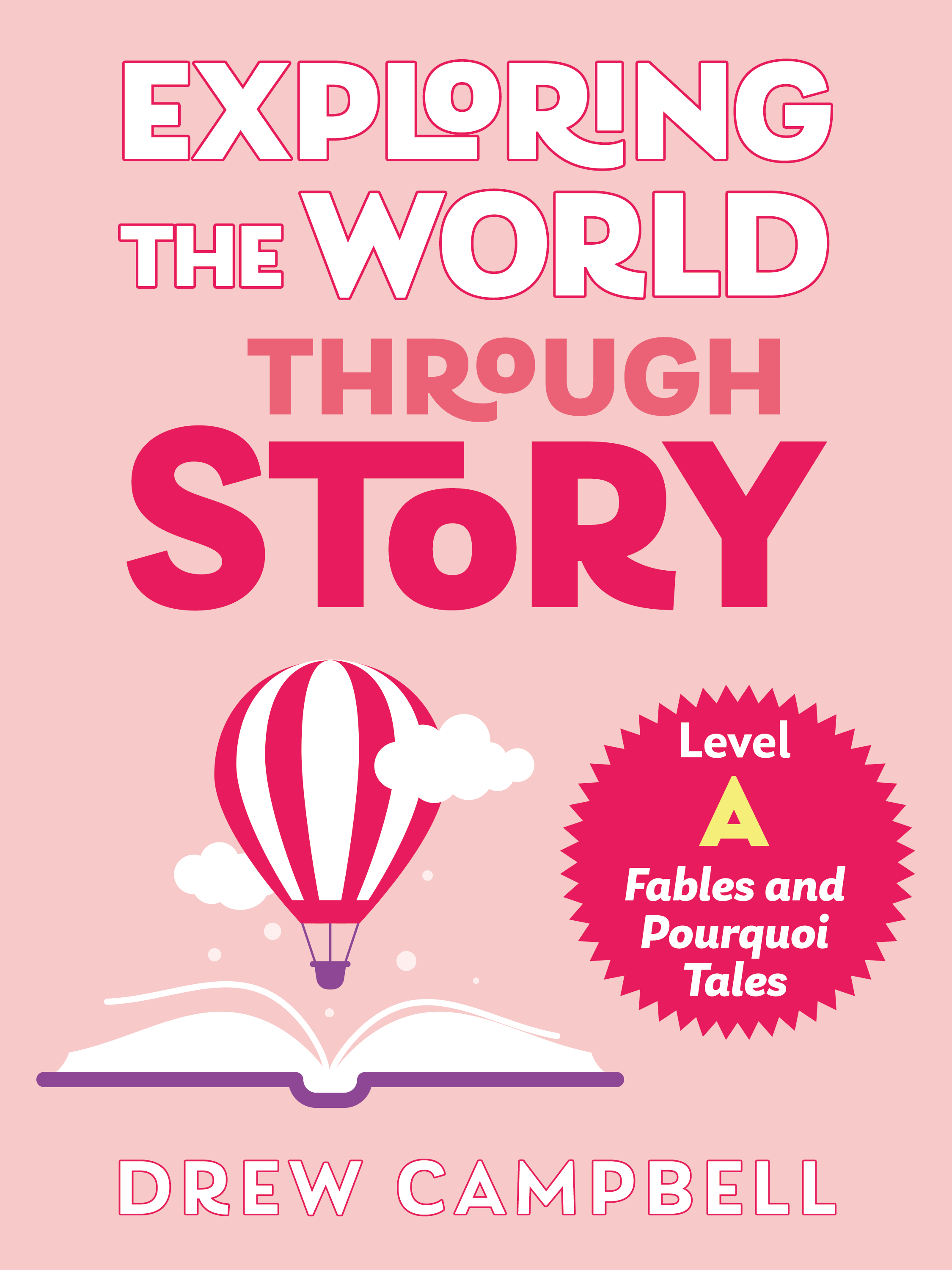
Level A: Fables and Pourquoi Tales
In Level A, you’ll share classic fables from Aesop and pourquoi (“how and why”) tales from around the world with your Kindergartner. By the end of the year, students will have explored stories from more than a dozen different cultures, and they will be able to name and locate all of the continents and world oceans.
Required texts: Aesop’s Fables for Children by Milo Winter, How and Why Stories by Martha Hamilton & Mitch Weiss, DK Countries of the World by Andrea Mills.
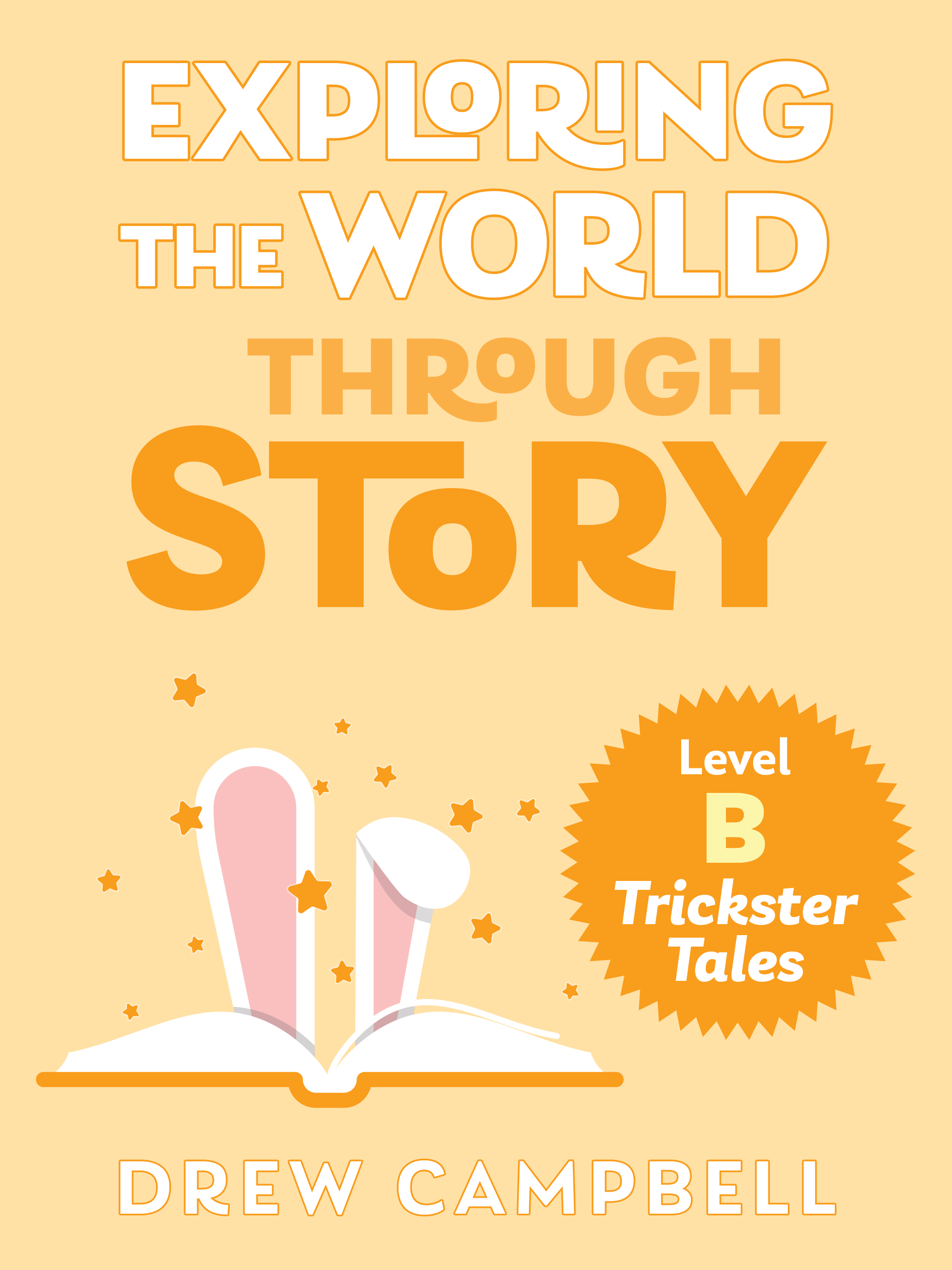
Level B: Trickster Tales
In Level B, first grade students meet famous trickster characters from around the globe while expanding their knowledge of world geography. African and African-American tales take center stage this year. Students discover how geographers divide the globe with lines of latitude and longitude.
Required texts: Trickster Tales by Josepha Sherman, The Adventures of Brer Rabbit and Friends by Karima Amin, African-American Folktales for Young Readers by Richard & Judy Dockery Young, DK Countries of the World by Andrea Mills.
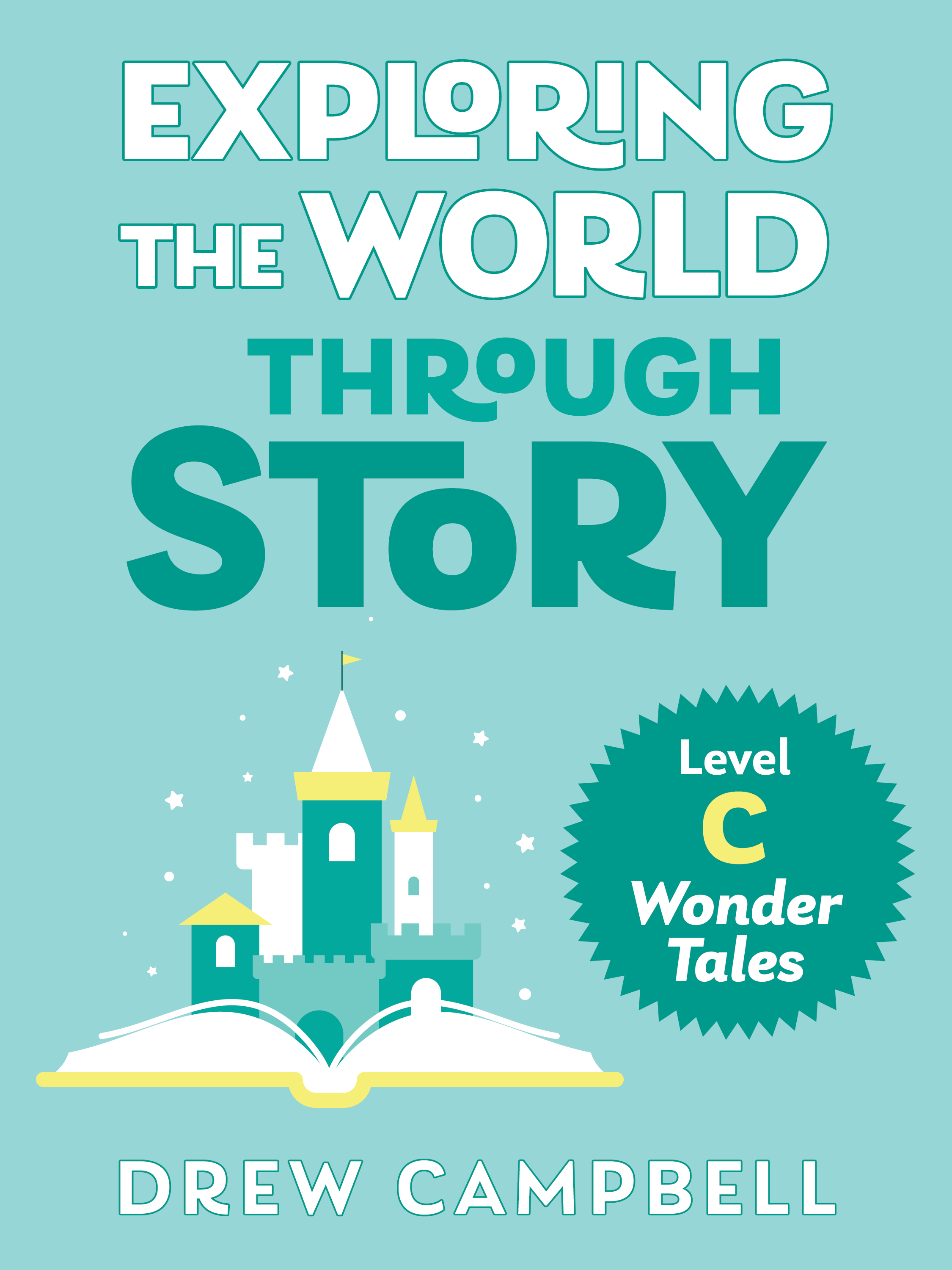
Level C: Wonder Tales
In Level C, second graders dive deep into the world of wonder tales, with a mix of classic stories from the European fairy tale canon and tales of imagination from every corner of the globe. By the end of the year, students will be able to identify twenty world regions and important countries in each.
Required texts: Best-Loved Folktales of the World by Joanna Cole, Wonder Tales from Around the World by Heather Forest, DK Countries of the World by Andrea Mills.
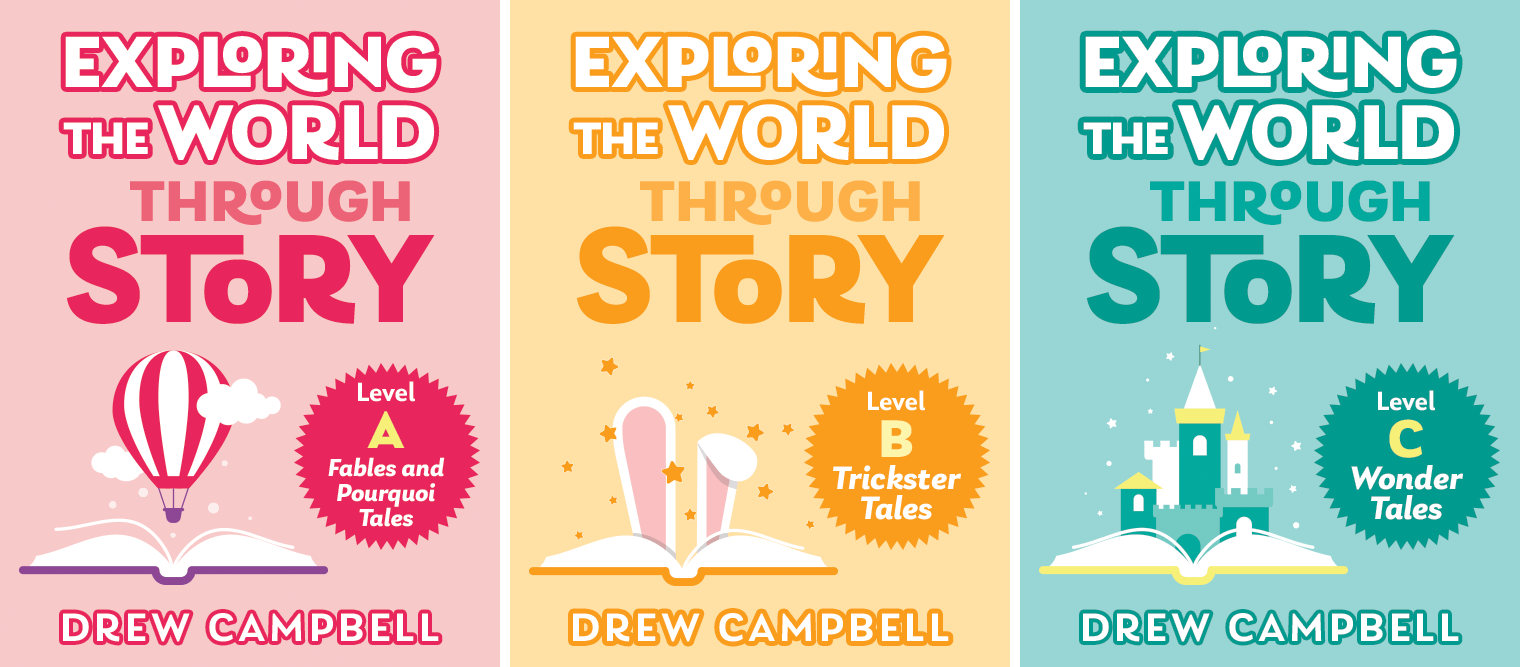
Bundle: Exploring the World through Story, Levels A-C
Buy all three primary levels and save!
Wisdom Tales (Grades 3-5)
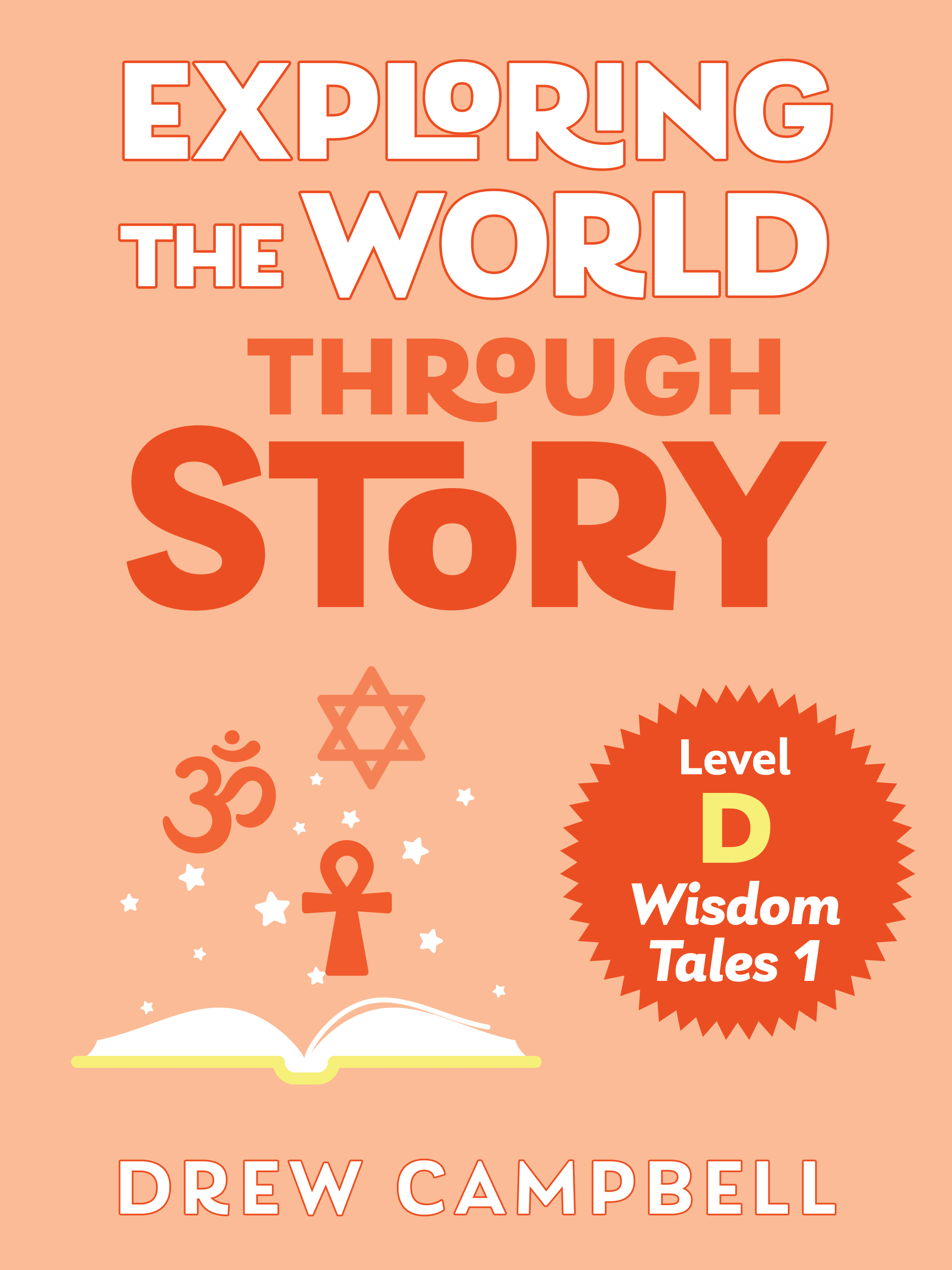
Level D: Wisdom Tales 1
In Level D, third graders read wisdom tales from the Hindu, ancient Egyptian, and Jewish traditions in beautifully illustrated children’s editions. Guided oral narrations, copywork, dictation, and varied composition activities support student writing. Students master literary terms and cultural information through memory work.
Required texts: Classic Tales from India by Vatsala Sperling & Harish Johari, Treasury of Egyptian Mythology by Donna Jo Napoli, Treasury of Bible Stories by Donna Jo Napoli.
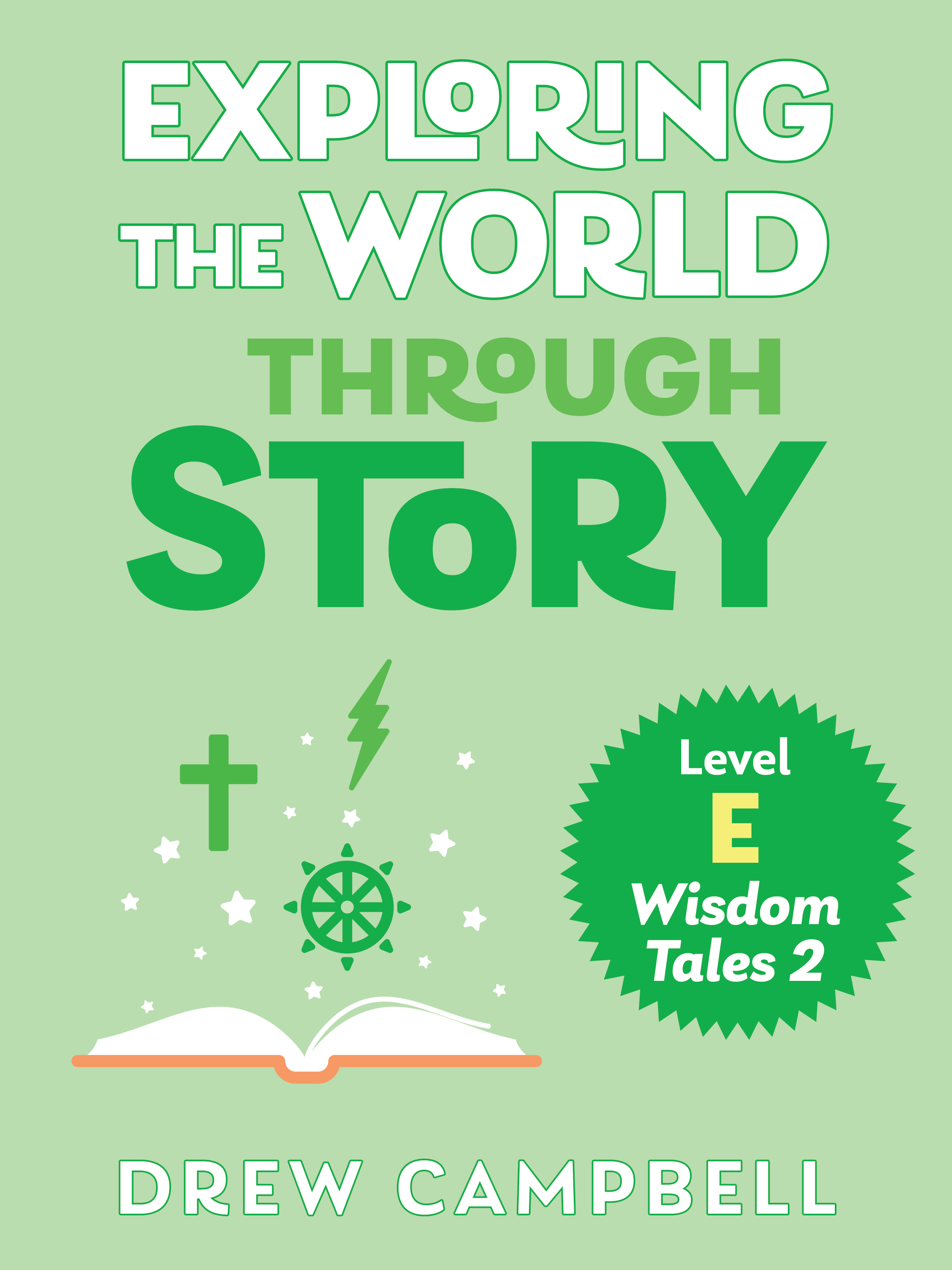
Level E: Wisdom Tales 2
In Level E, fourth graders read wisdom tales from the Buddhist, Christian, and ancient Greek traditions. Students practice paragraph formation with dictation and varied writing activities. Memory work helps them learn key literary terms and cultural information.
Required texts: Buddha by Demi, Twenty Jataka Tales by Noor Inayat Khan, DK Illustrated Family Bible (1997 ed.) by Claude-Bernard Costecalde, DK Greek Myths by Jean Menzies.
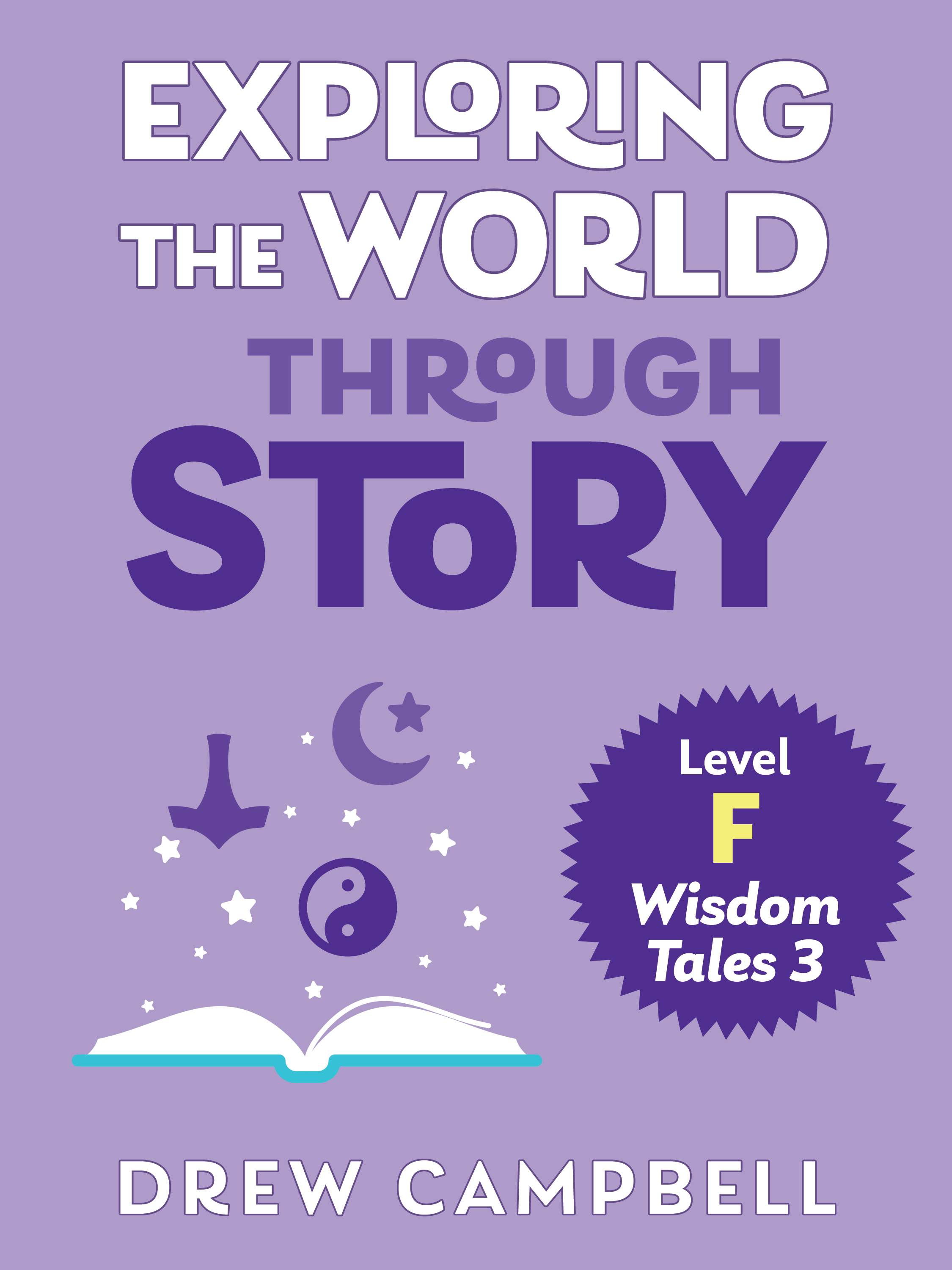
Level F: Wisdom Tales 3
In Level F, fifth graders read wisdom tales from the Islamic, Norse, and Chinese traditions. Dictation passages and scaffolded composition activities support student writing. Students master literary terms and cultural information through memory work.
Required texts: Muhammad by Demi, Tales from the Quran and Hadith by Rana Safvi, DK Norse Myths by Matt Ralphs, Tales of a Chinese Grandmother by Frances Carpenter, Chinese Myths and Legends by Shelley Fu.
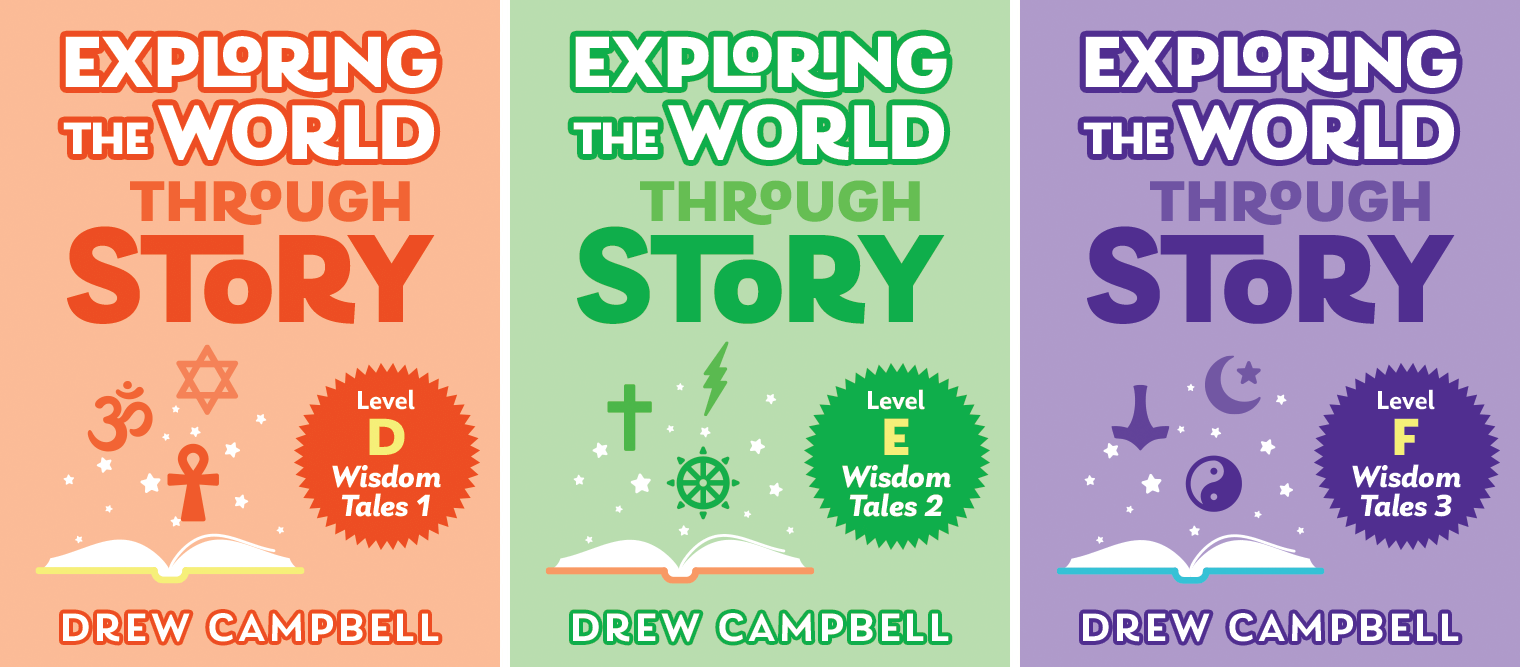
Bundle: Exploring the World through Story, Levels D-F
Buy all three elementary levels and save!
Heroic Tales (Grade 6)
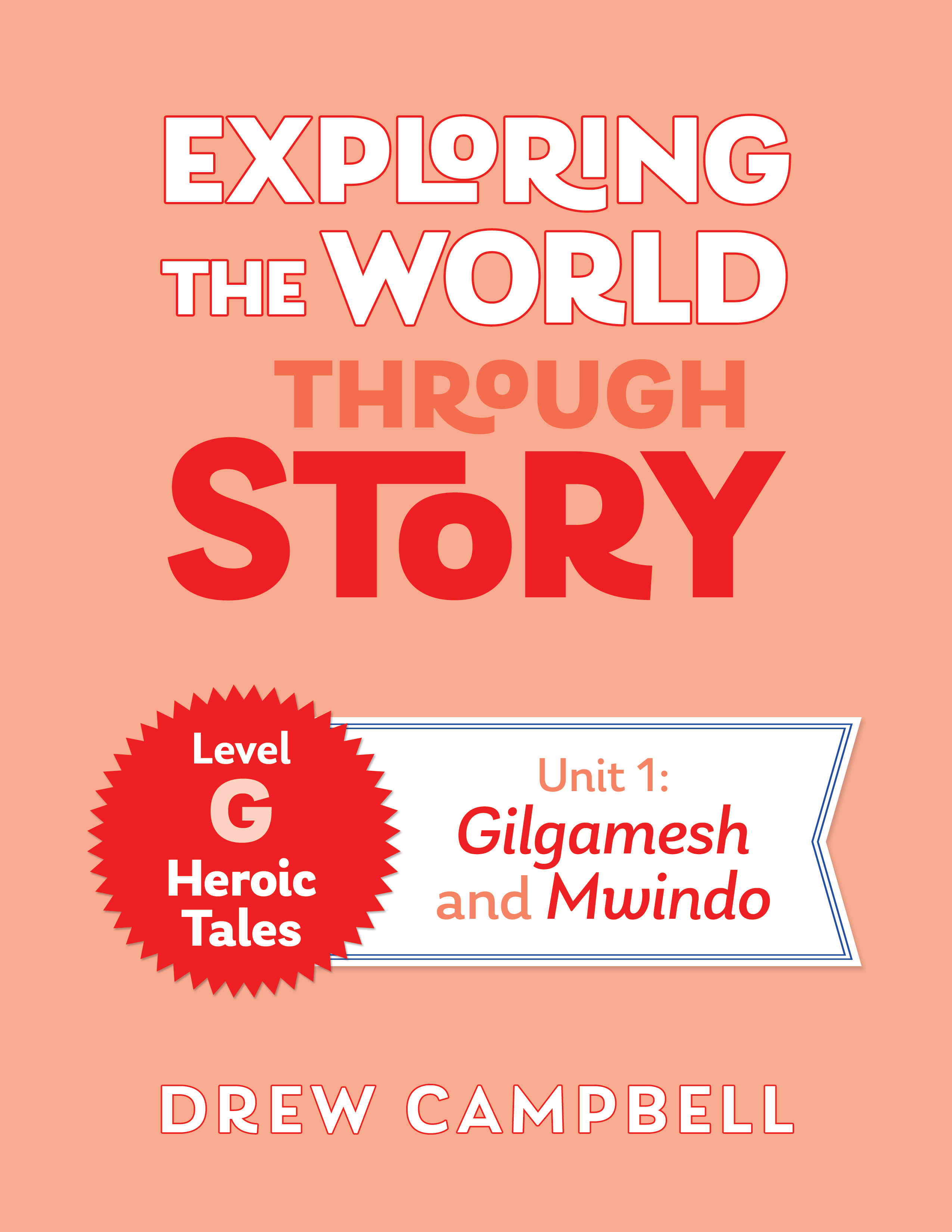
Unit 1: Gilgamesh and Mwindo
In Level G, sixth graders explore what it means to be a hero. The first of the three units in this level introduces Gilgamesh and Mwindo as students learn how to expand a simple paragraph into a three-paragraph comparison essay.
Required texts: Gilgamesh the Hero by Geraldine McCaughrean, The Magic Flyswatter by Aaron Shepard.
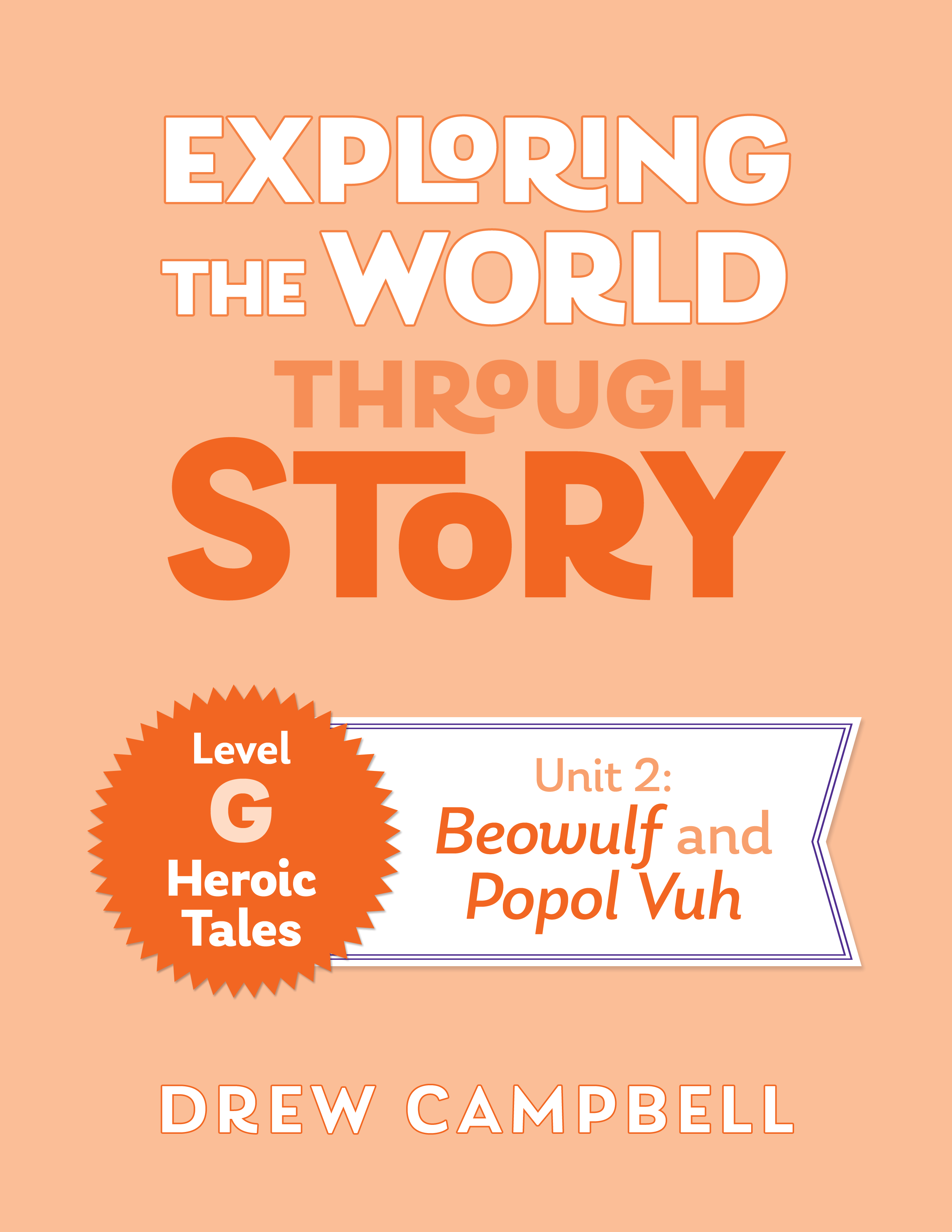
Unit 2: Beowulf and Popol Vuh
In Level G, sixth graders explore what it means to be a hero. The second of the three units in this level introduces Beowulf and the Popol Vuh as students learn how to expand a simple paragraph into a three-paragraph contrast essay.
Required texts: Beowulf by Michael Morpurgo, Popol Vuh: A Retelling by Ilan Stavans.
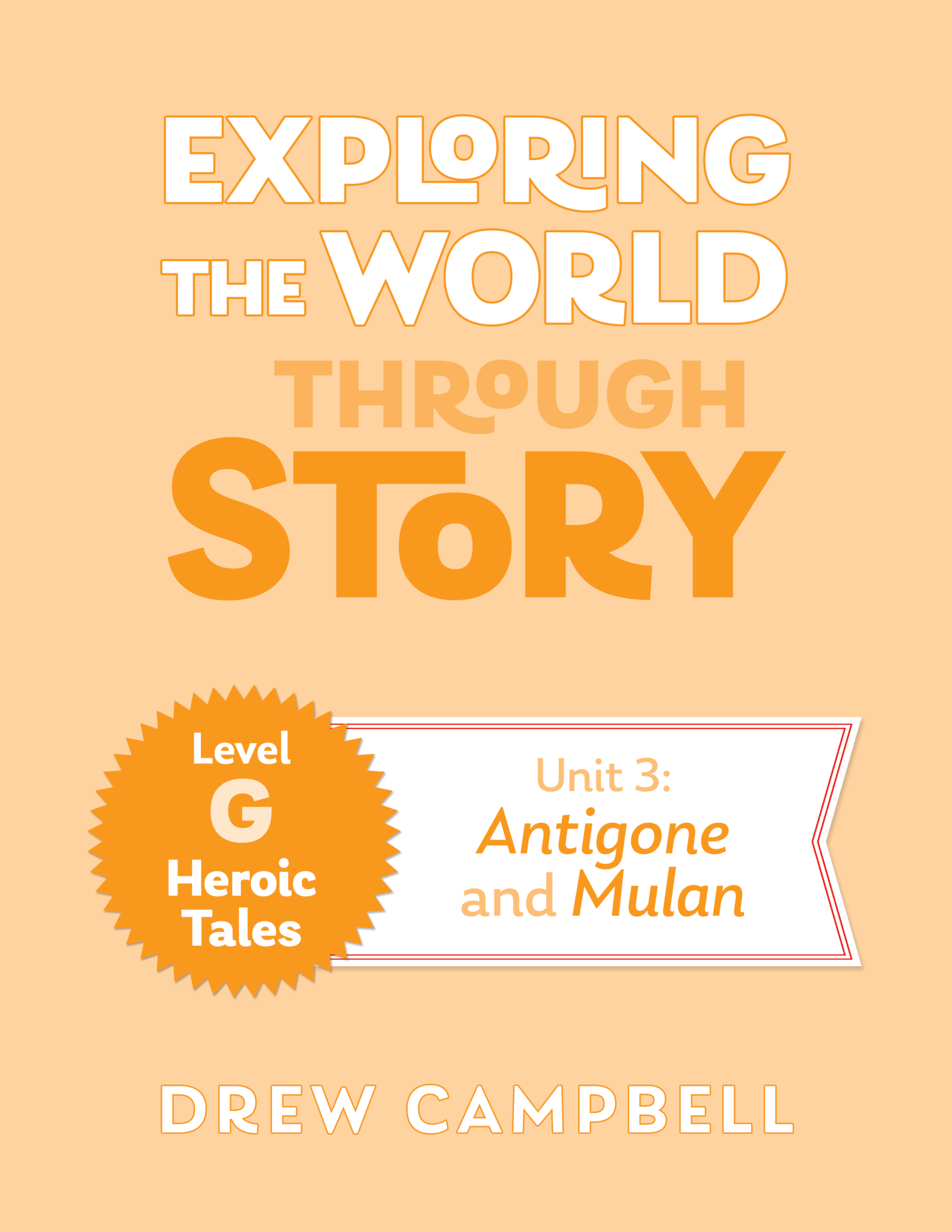
Unit 3: Antigone and Mulan
In Level G, sixth graders explore what it means to be a hero. The last of the three units in this level introduces Antigone and Mulan as students learn how to expand a simple paragraph into a three-paragraph compare-contrast essay.
Required texts: Three Theban Plays by Robert Fagles (trans.), Mulan: Five Versions of a Classic Chinese Legend by Shiamin Kwa & Wilt L. Idema.
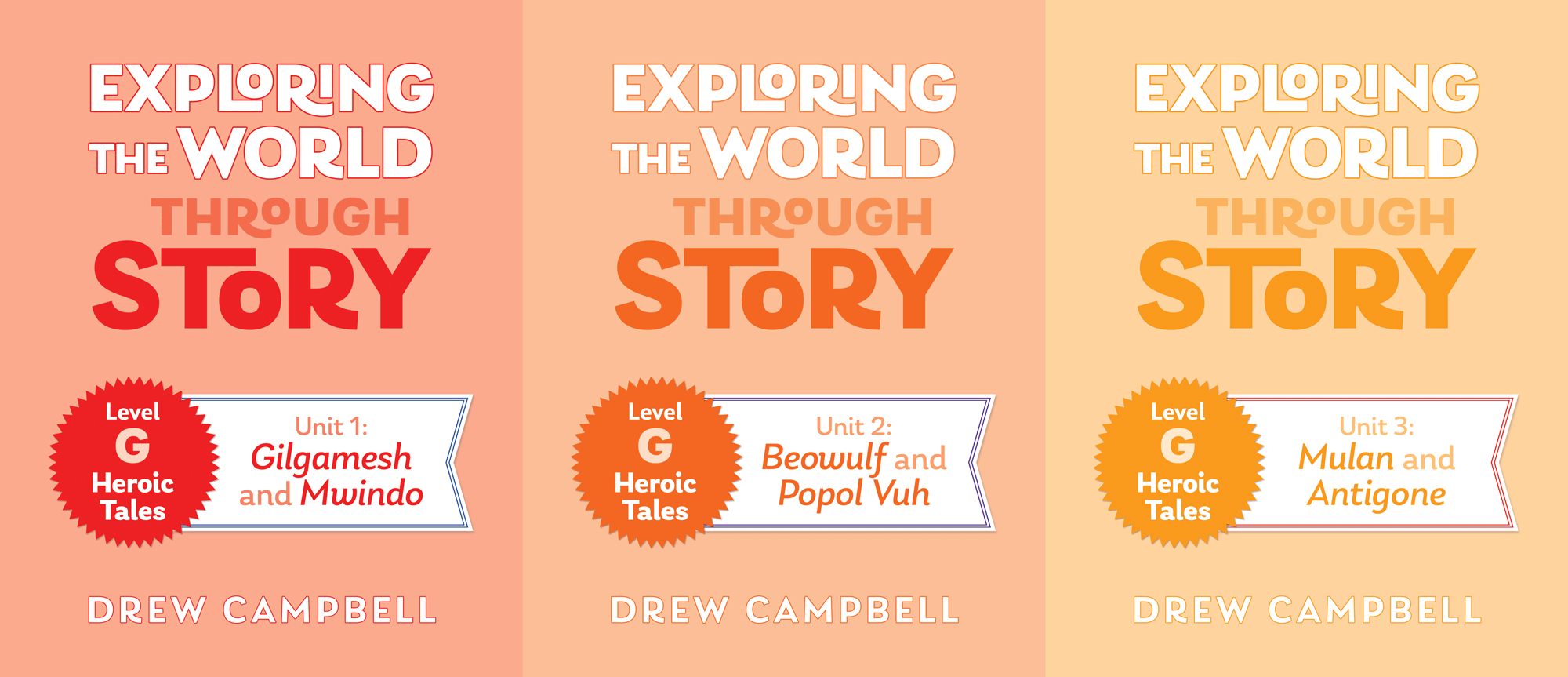
Bundle: Exploring the World through Story, Level G, Units 1-3
Buy all three Level G units and save!
Classical Epics (Grade 7)
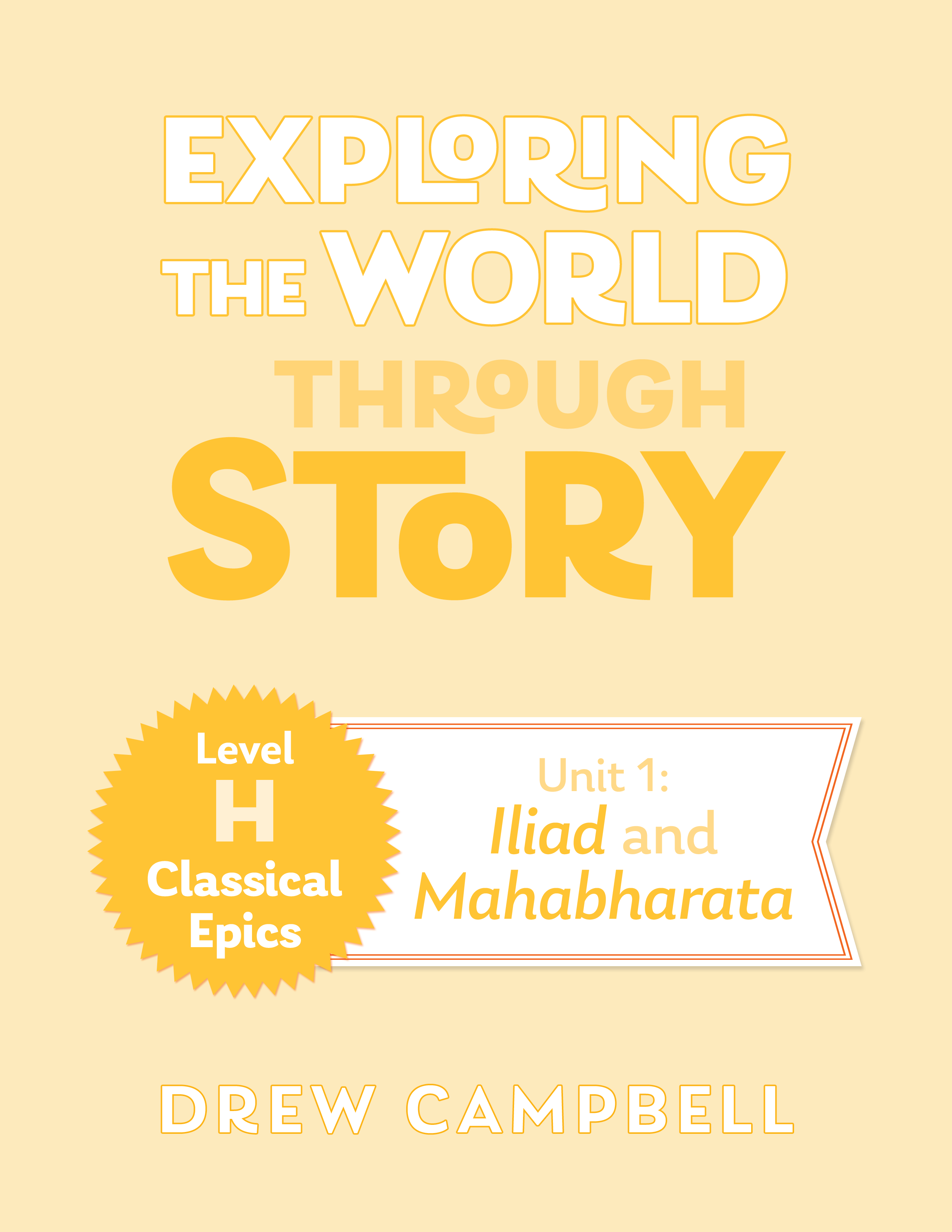
Unit 1: Iliad and Mahabharata
In Level H, seventh graders explore the themes and structure of classical epics. The first of the three units in this level introduces the Iliad and the Mahabharata as students learn how to write a four-paragraph essay.
Required texts: Black Ships Before Troy by Rosemary Sutcliff, The Puffin Mahabharata by Namita Gokhale.
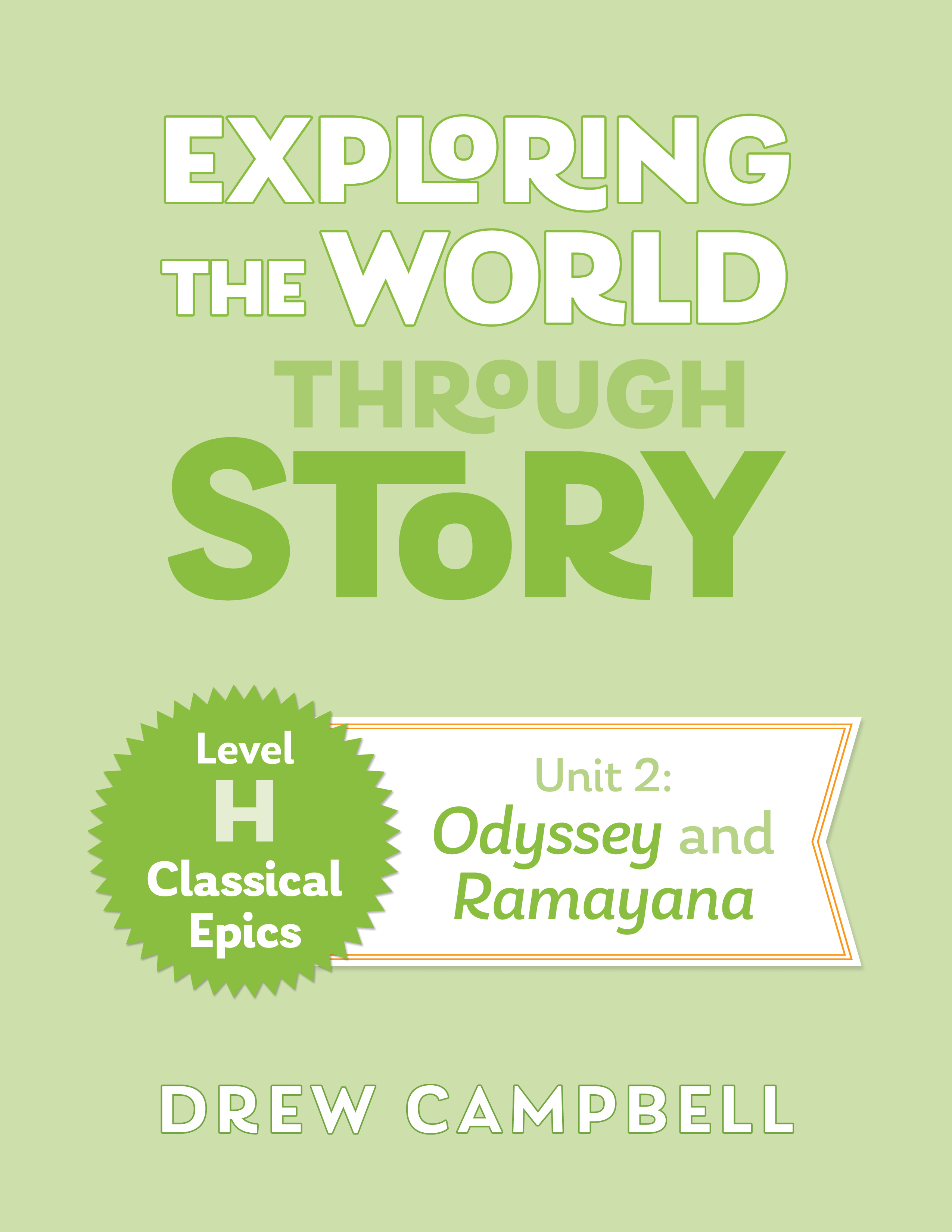
Unit 2: Odyssey and Ramayana
In Level H, seventh graders explore the themes and structure of classical epics. The second of the three units in this level introduces the Odyssey and the Ramayana as students practice writing four-paragraph essays.
Required texts: The Wanderings of Odysseus by Rosemary Sutcliff, Ramayana: An Illustrated Retelling by Arshia Sattar.
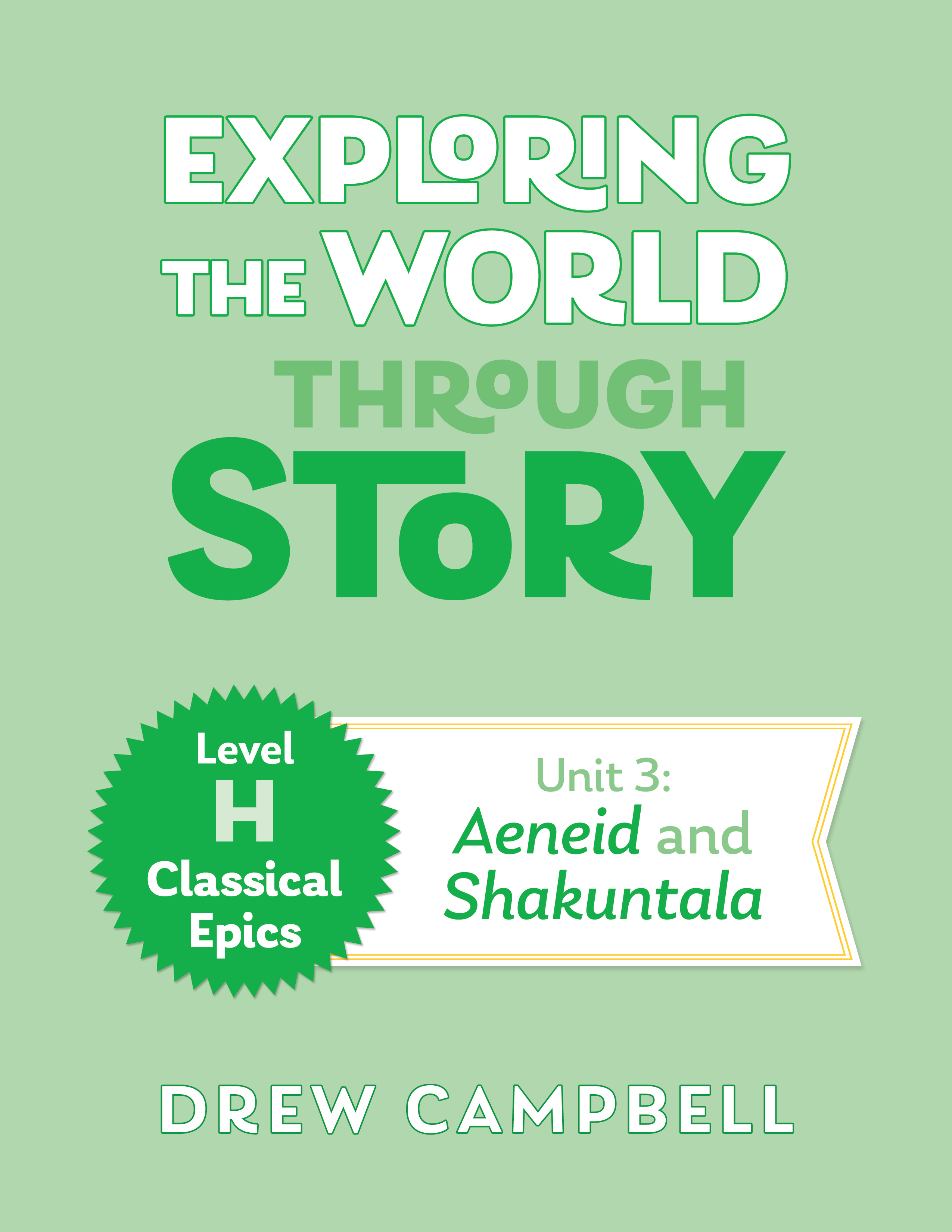
Unit 3: Aeneid and Shakuntala
In Level H, seventh graders explore the themes and structure of classical epics. The last of the three units in this level introduces two stories based on earlier epics, the Aeneid and Shakuntala, as students practice writing four-paragraph essays.
Required texts: Virgil’s Aeneid Retold for Young Adults by Frank Hering, Shakuntala by Ashok Sinha (trans.).
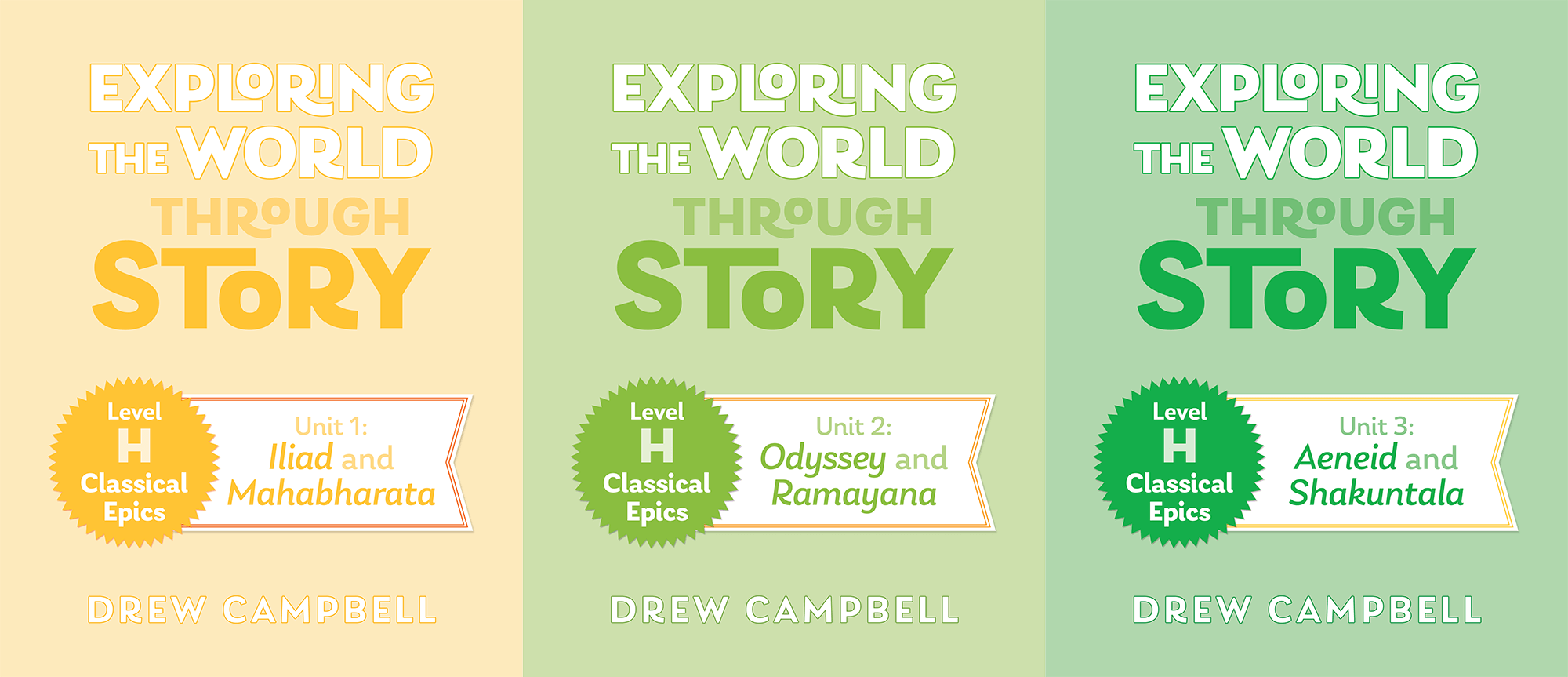
Bundle: Exploring the World through Story, Level H, Units 1-3
Buy all three Level H units and save!
Folk Heroes (Grade 8)
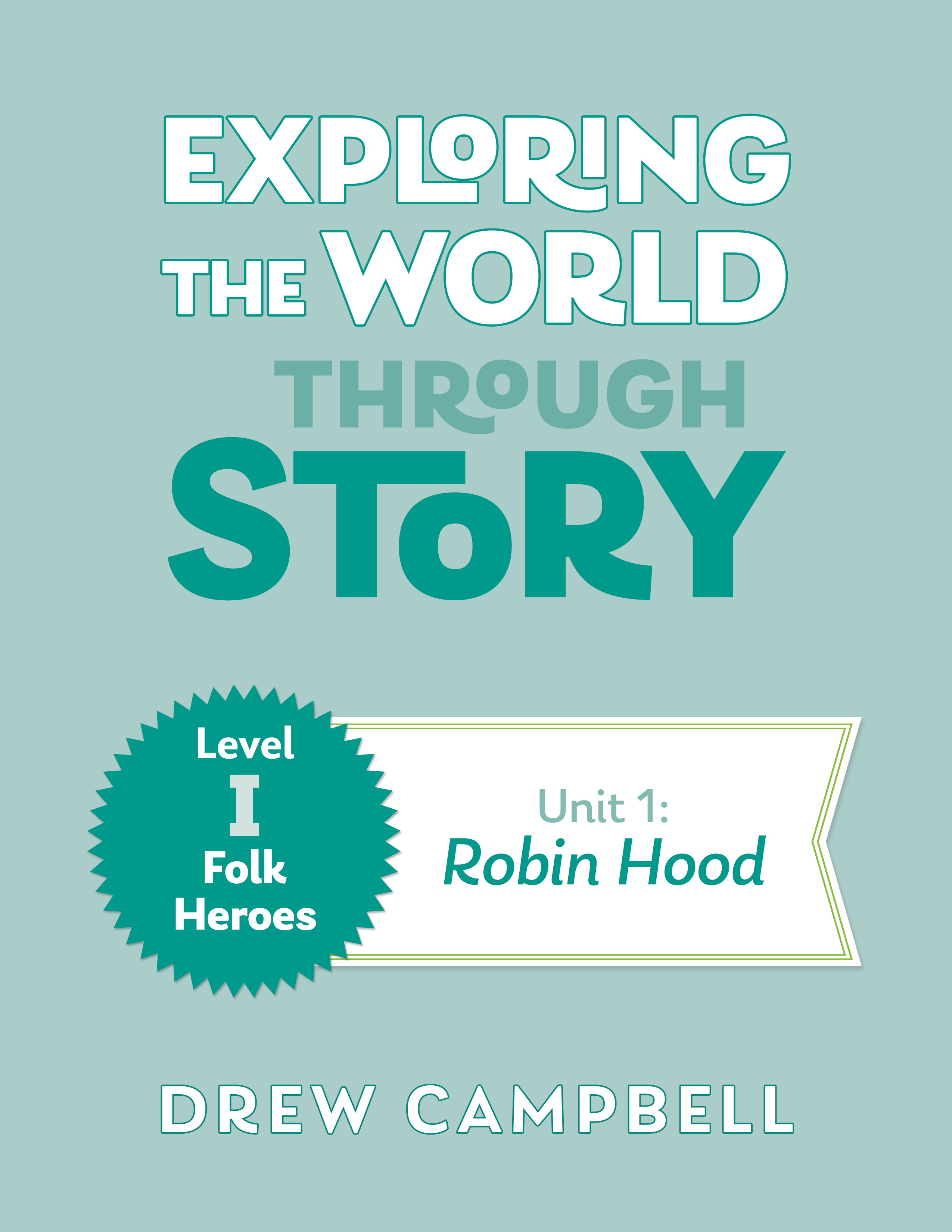
Unit 1: Robin Hood
Coming for the 2025-2026 school year.
Required text: The Adventures of Robin Hood by Roger Lancelyn Green.
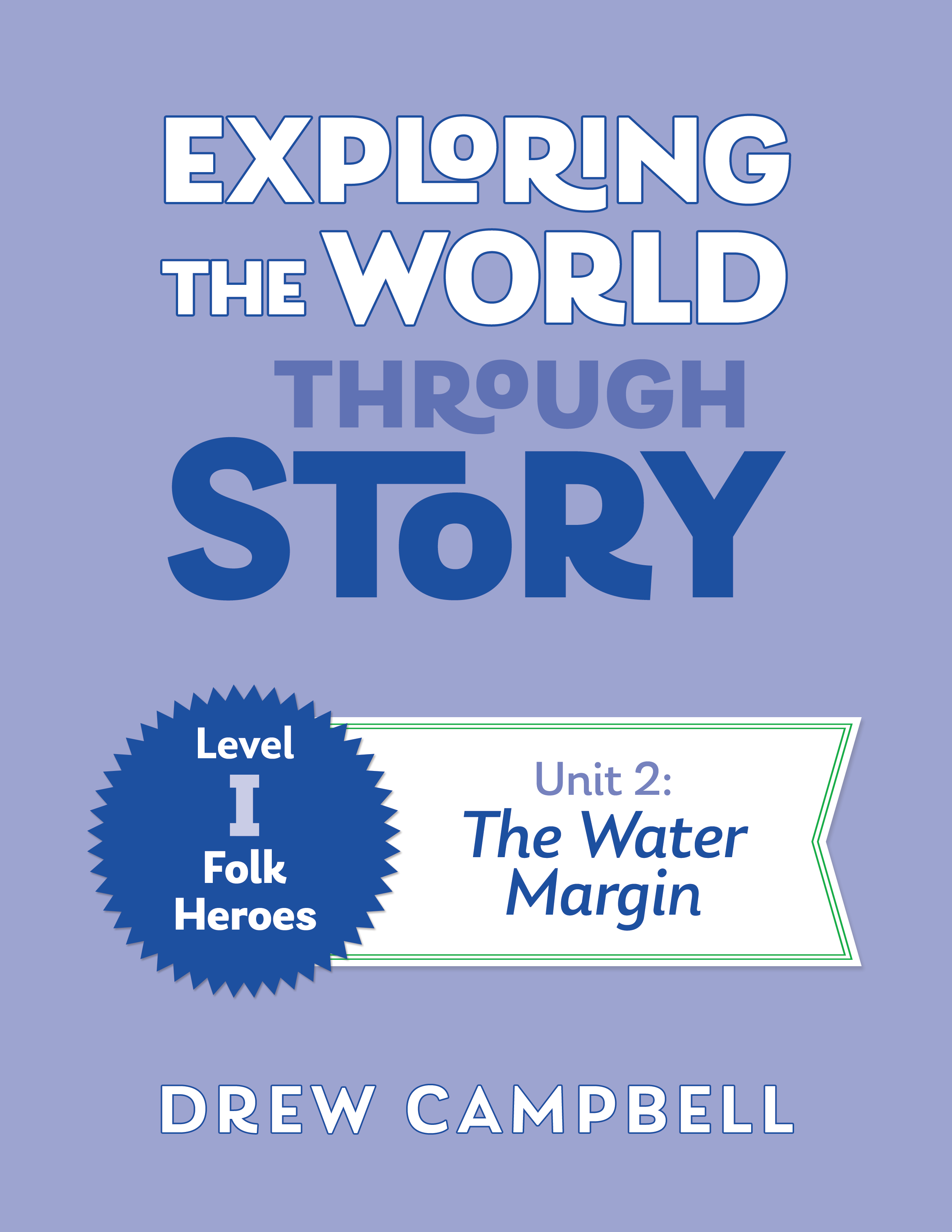
Unit 2: The Water Margin
Coming for the 2025-2026 school year.
Required text: Outlaws of the Marsh retold by Wang Guozhen.
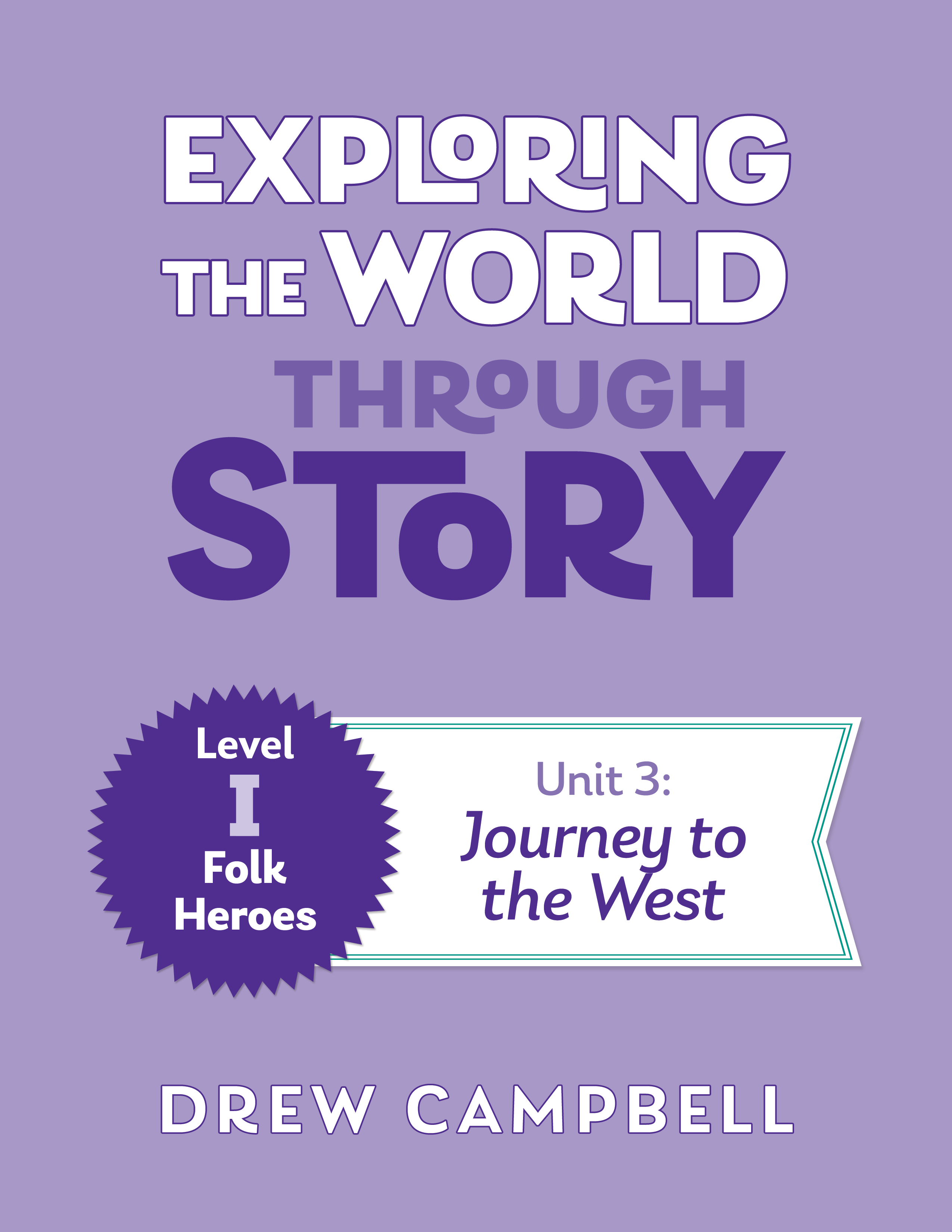
Unit 3: Journey to the West
Coming for the 2025-2026 school year.
Required text: Monkey King: Journey to the West by Julia Lovell (trans.).
Writing Skills for Older Beginners (Ages 11+)
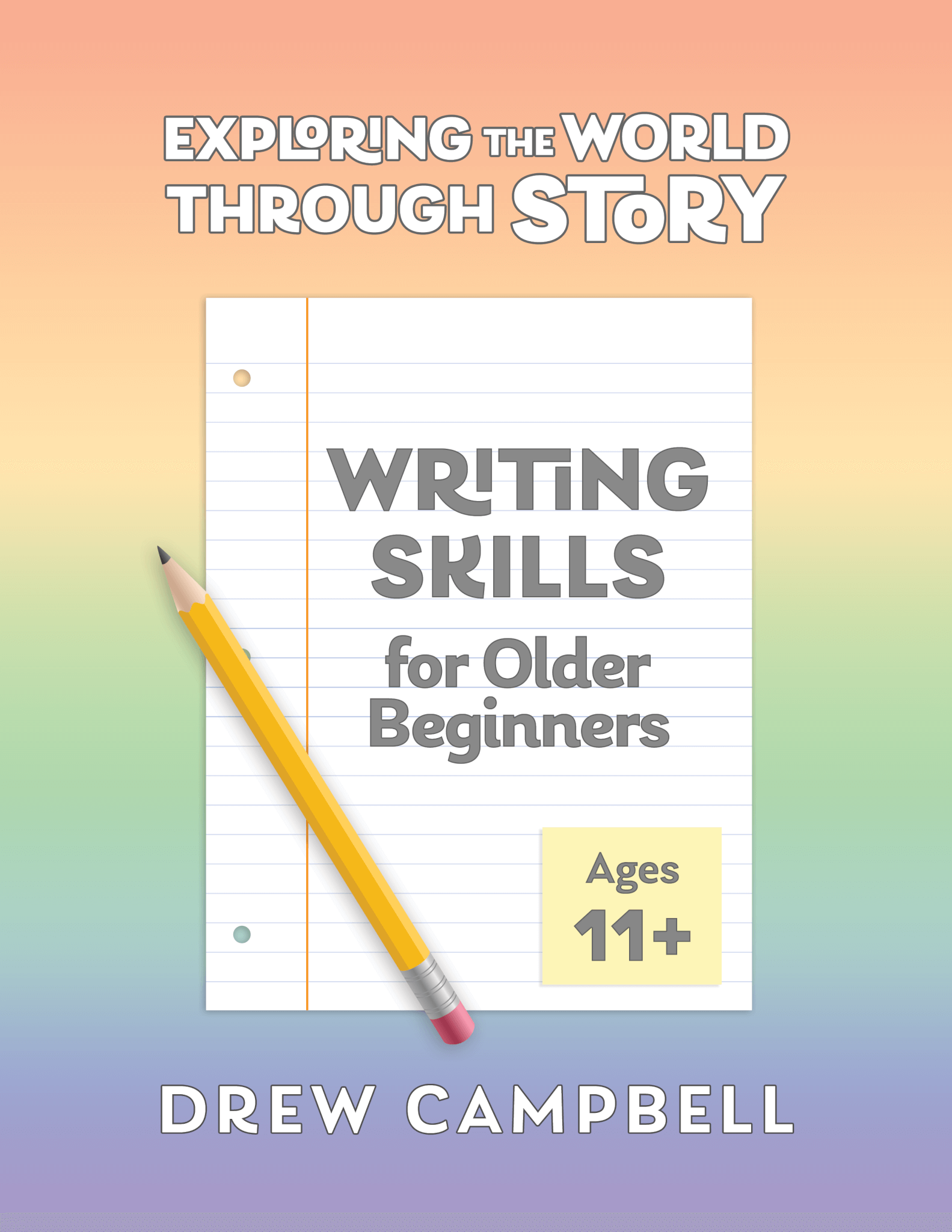
Writing Skills for Older Beginners
EWS Writing Skills for Older Beginners introduces students age 11+ to the fundamentals of expository writing. Students practice oral and written narration; sentence variation; and paragraph structure and expansion and they write about classic folktales from around the world. After finishing the course, students will be prepared to learn essay-writing with EWS Level G or another curriculum. The 24 lessons in EWS Writing Essentials can be completed in 6 weeks, making it a perfect summer class, review course, or writing supplement.
Required text: Best-Loved Folktales of the World by Joanna Cole.
Helpful Links
- EWS Samples with booklists for all currently available levels
- EWS Placement Guide
- EWS Scope & Sequence
- Grammar & Writing with EWS
- ELA Skills Sequence
- EWS A-C Countries & Peoples
- EWS-E Jataka Tales Update
- Recommended PreK Read-Alouds
- Stone Soup Press Licensing Information
- EWS Facebook Group
- EWS classes online: The Bookish Society (US), Epic Education Illawara (Australia)
